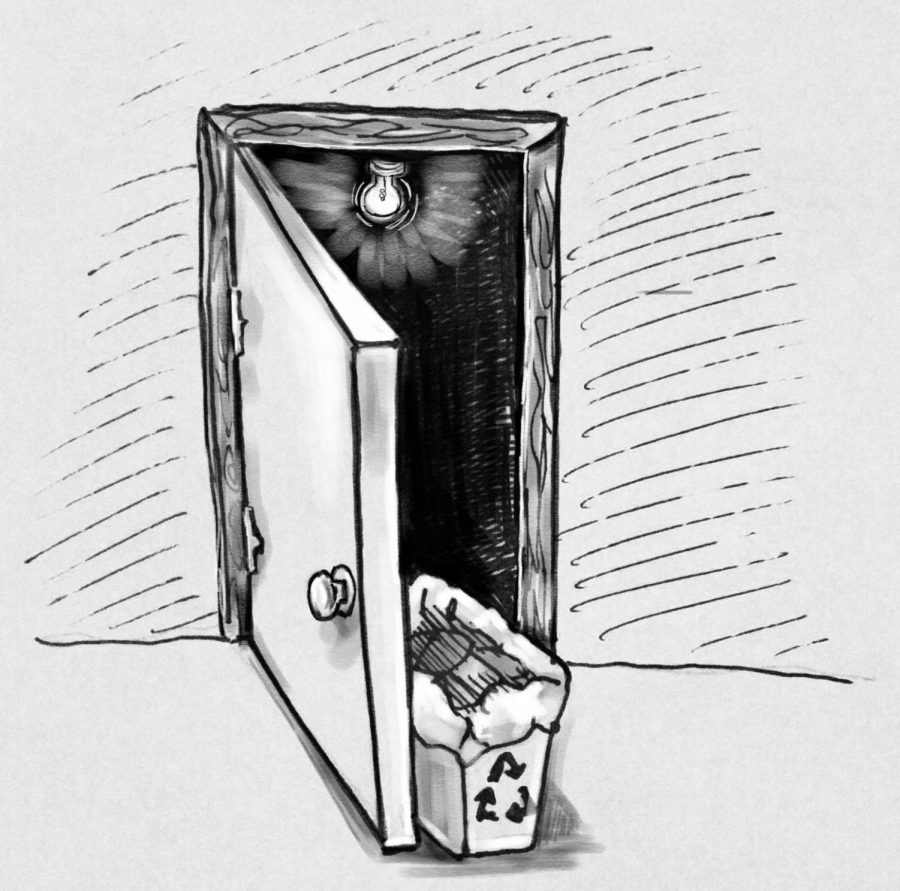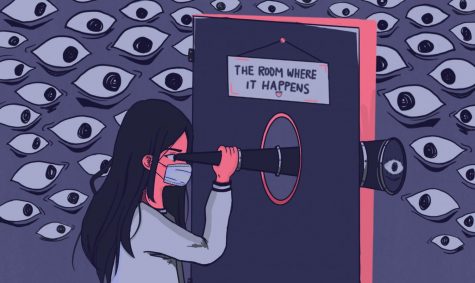Time to Abolish Intervis
Intervisitation is a broken system that actively prevents the formation of a healthy culture around sexuality at Groton. Intervis is intended for members of the opposite sex to visit in each other’s rooms while a faculty member is on duty, the door is propped open, and the lights are turned on.
According to the Student/Parent Handbook, these requirements are because “dormitory visits are not for sexually intimate behavior.” One of the reasons for this prohibition is because, according to the handbook, the school “feels that sexual intimacy is not appropriate until students have reached a level of maturity that generally occurs after adolescence,” even though the legal age for individuals to give consent in Massachusetts is sixteen. My question is: why have intervis at all?
As long as students are above the age of consent, the School should allow them to engage in sexual activity. I do not think sexual activity needs to be encouraged, but students above sixteen should have the opportunity to make a healthy, legal choice.
In addition, the taboo around discussing sex creates uncomfortable situations for students. All twelve prefects in girls’ dorms Dumont’s and Kelly’s, and four out of the ten prefects in boys’ dorms Fry’s and Nelson’s, said they have heard of uncomfortable situations regarding intervis – for example, teachers winking at students, scanning the students up and down before saying, “are you sure?” or throwing the intervisiting student out of the dorm if they are found in the midst of sexual activity.
Not only does this behavior prevent students from talking to these teachers, but it makes students wary of faculty members in general. This unease means that many students head to hidden places around campus to be with their partners. For me personally, this environment meant my first kiss at Groton involved walking a quarter of a mile away from campus in the pitch black, putting myself in a potentially unsafe situation in order to avoid teachers – and my experience is not uncommon. Many students feel more comfortable hooking up in a soccer field than in their own rooms.
This lack of being able to go to a room during intervis also means that teachers encounter students in illicit places. This situation is uncomfortable for everyone involved. As the handbook says, “the campus is shared public space, and all members of the community have the right to be free of unwanted exposure to the intimate sexual behaviors of others.” While this should be the case, the school places an effective ban on sexual relationships by removing both public and private spaces.
In order for students to be intimate with each other, they need a place to do it, and it would be far more comfortable for everyone involved if they had a private space. There is no way, especially at a boarding school, to create a no-sex culture; only an unhealthy sex culture. A closed-door policy for intervis could help, but the problems with intervis extend far beyond the ability of students in opposite-sex relationships to express their sexuality.
In fourth form, someone I knew fairly well came out as lesbian and started dating her first girlfriend. After her dorm head found out that there was ongoing sexual activity in the dorm, she asked the deans whether intervis policy should have been implemented. While there are merits to both sides of the argument, it places an inherent bias on members of the LGBT+ community that this discussion had to happen at all, and enforces the idea that heterosexuality is the norm.
This year in Ethics, Morrie Reiss ’19 was talking about intervis, and said that they “had to play a constant guessing game about where [they were] allowed to go” in boys’ and girls’ dorms. Morrie or any future Groton student who is non-binary, transgender, or any other identity for whom single-gender spaces may pose a problem, should not have to face this mental debate on their own campus. This concern is why merely reforming intervis will not be enough, and students should be allowed to welcome whomever they want into their rooms at any time.
Intervisitation simultaneously enforces heteronormativity and prevents the opportunity for healthy heterosexual relationships. While the conversation around changing this will take some time, there are some imperative steps that can be taken immediately: more sexual education, for starters, especially for students under the age of 16. We could also benefit from making sure teachers, particularly dorm heads, express support for any student who may need it, removing language in the handbook that may make students feel stigmatized for healthy and legal sexual activity, and creating an all-gender dorm so LGBT+ students can feel more welcomed.
Hopefully, these steps can start paving the way to a place where all students, regardless of sexual orientation, age, gender, and whether or not they choose to express their sexuality, are comfortable. But to fully resolve the problems the school’s culture around sex causes, it will be necessary to abolish intervis.















Charlie • Oct 9, 2019 at 11:48 PM
WOW abby! i’m so proud of you. look how far you have come as an author and a woman.